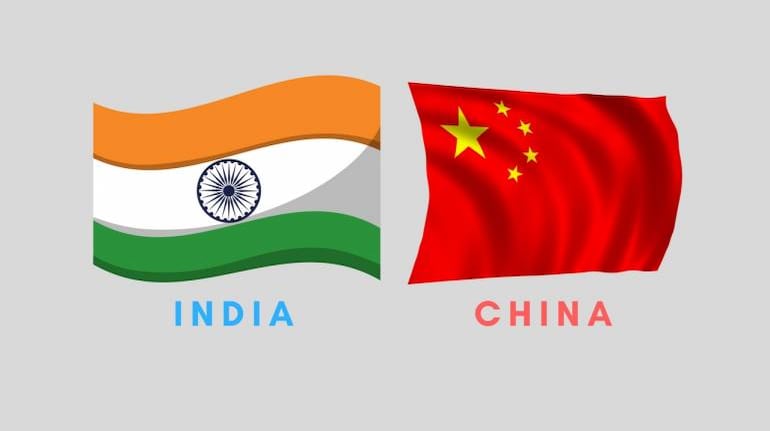



Jabin T Jacob
China’s decision to take India’s reorganisation of Jammu & Kashmir to the UN Security Council raises several questions about its interest in durable good relations with India.
External Affairs Minister S Jaishankar’s visit to Beijing was clearly not enough to prevent Beijing from issuing yet another statement declaring China’s ‘Clear Position on the Kashmir Issue’ on August 12. This statement, which followed the meeting between Chinese foreign minister Wang Yi and Jaishankar, was essentially a combination of the two statements issued previously by the Chinese on August 6 on India’s decision in J&K as a more specific one on Ladakh.
Even if held behind closed doors, the United Nations Security Council (UNSC) meeting on August 16 was significant because it was for the first time since 1965 that it had convened exclusively to discuss the Kashmir dispute. The Chinese ambassador to the UN, Zhang Jun, declared that the UNSC members had “expressed their serious concern” and called on both India and Pakistan to “refrain from taking any unilateral action which might further aggravate…
The meeting thus offered the Chinese an opportunity to underline the India-Pakistan hyphenation and its position as somehow being above the fray.
The last Chinese ambassador to India, Luo Zhaohui’s elevation to vice minister in charge of Asian affairs at the Chinese foreign ministry has been seen as a significant sign of Beijing’s interest in South Asia. However clearly, Luo’s experience of India and knowledge of its sensitivities seem not to have played a part in China’s recent decisions. Luo was, of course, also formerly ambassador to Pakistan and the Chinese desire to keep India and Pakistan hyphenated from a political perspective remains as strong as ever.
The reiteration of its position on August 12 and the push for the UNSC meeting suggest Beijing’s desire to drive home a message to New Delhi about China’s interests, indispensability and clout in the region.
Besides hosting Pakistani Foreign Minister Shah Mahmood Qureshi soon after the Indian declaration, China had by the end of August also sent General Xu Qiliang, a vice-chairman of the Central Military Commission and its senior-most military officer, to Pakistan. During his visit, General Xu met with the top Pakistani leadership as well as the three military service chiefs.
It is against this context also that we must look at other aspects of the India-China relationship.
While in Beijing, Jaishankar co-chaired with his counterpart Wang the India-China High Level People-to-People and Cultural Exchanges Mechanism that was initiated by Prime Miniser Narendra Modi and Chinese President Xi Jinping.
Sun Weidong, the new Chinese envoy in New Delhi — like his predecessor also a former ambassador to Pakistan — wrote an op-ed in The Hindu on August 24, where he made no mention of Kashmir but chose to dwell instead of historical ties between the two civilisations and to highlight the above-mentioned mechanism.
However, even these attempts to put a positive spin on the relationship have to be assessed against the reality on the ground. Chinese diplomats, journalists and other agencies of the Chinese state and the Communist Party of China are active on Twitter, Facebook and several other western social media platforms otherwise banned in China itself. The attempt here and in the official media space has constantly been to belittle India, highlight the India-Pakistan hyphenation, and undermine Indian positions. On occasion, Chinese posts have also tended towards stereotyping and racism.
One prominent Chinese Twitter handle, for instance, notes that ‘Pangong lake… has most of its part lies in China, and a small part in #Kashmir, where the "3 Idiots" film ends with Aamir Khan meeting Kareena Kapoor.’ It should not be surprising that even as she highlights the hit Indian movie – a huge hit also in China – the lady tweeting did not say the ‘small part’ was in India or that the bigger part was in Tibet. The same handle had earlier posted a picture with Chinese text critical of an Indian-born judge in Hong Kong who she said granted bail to ‘leading Hong Kong separatists’ and had earlier in 2018 jailed a HK police officer ‘who carried out operation in Occupy movement in 2014’ (the ‘operation’ in question was the officer’s use of his baton on a bystander) – in the picture, the Hong Kong judge was referred to as a ‘dog’.
These descriptions and portrayals form part of a larger Chinese attempt to create and direct a certain negative narrative about India not just at home but also abroad. Under these circumstances, plain speak is essential — during his visit, Jaishankar did note ‘The future of the India-China relationship will obviously depend on mutual sensitivity to each other’s core concerns.’
However, it is equally clear from the visit that the relationship has set itself a very low bar of achievement talking about cultural exchanges and cooperation in traditional medicine and sports. These are essentially soft issues, low-hanging fruit, but which are unlikely to help repair in a hurry the high degree of political mistrust that exists between the two sides.
Jabin T Jacob is associate professor, Department of International Relations and Governance Studies, Shiv Nadar University, Greater Noida and adjunct research fellow, National Maritime Foundation, New Delhi. Twitter: @jabinjacobt. Views are personal.
Discover the latest Business News, Sensex, and Nifty updates. Obtain Personal Finance insights, tax queries, and expert opinions on Moneycontrol or download the Moneycontrol App to stay updated!
Find the best of Al News in one place, specially curated for you every weekend.
Stay on top of the latest tech trends and biggest startup news.